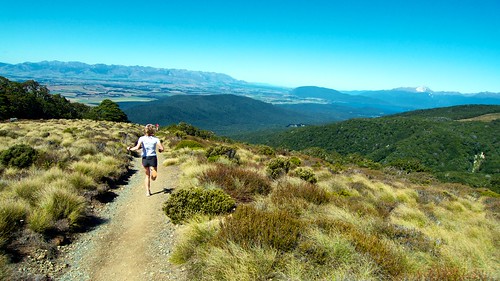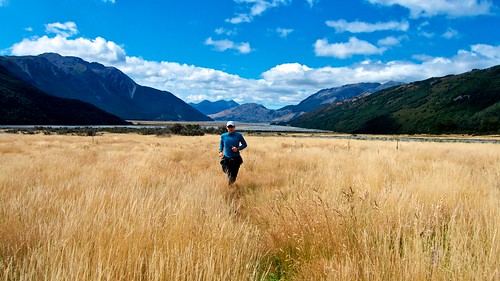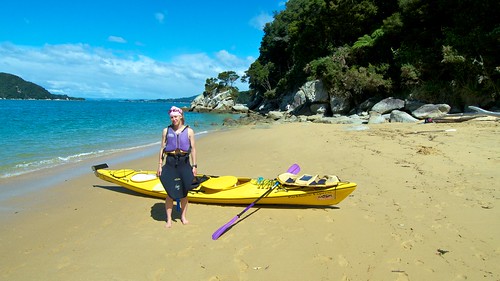About The Road to RubyConfXk
This is a series of articles that I’m writing paving the road to RubyConf Xk, the second installment of the running event at the yearly RubyConf. This is the pilot episode of the series. Next parts will explore several diverse topics loosely related to running.
I’ll have to start with a confession. If you’re looking for experiences from someone who knows a lot about how to start to run, I’m not the right person. While I technically did start to run, that happened when I was only a few years old. I don’t remember much from those days. Unlike many others, I never stopped running after that. So maybe the right thing to say is I don’t know much about restarting to run.
Also, I’m not a real runner at all. I’m first and foremost an orienteer and like many other sports as well. Likewise, while I mostly talk about running in this series, many if not most of the lessons can be directly applied to other endurance sports as well.
However.
Running is a natural way to move, and to me, the purest form of all sports. For millions of years, it was the fastest way to move on land known to mankind. It is the way children naturally move when they play, often hours every day1. At some point, we slip away from this much exercise (often all the way down to nothing).
Why is this bad? That’s what the rest of this article tries to uncover.
Health
This is kind of stating the obvious (and—I hope—preaching to the choir), so I’m going to keep this short. Exercise makes you healthier, it makes you live longer and it makes you feel better here and now. There, I’ve said it. Now for something you might not have considered.
Quiet time
In a recent MacBreak Weekly episode, Andy Ihnatko mentioned Nicholas Carr’s The Shallows: What the Internet Is Doing to Our Brains. In the book, Carr explores what the constant stream of bit-size information and interruptions coming from the internet is doing to our brains. Whether or not you agree with his conclusions2, it’s clear that in this age of uninterrupted interruptions, our brain needs some quiet time. Now that we can surf on the ‘net while sitting in the bathroom, there are fewer and fewer places where we can really sit back (either figuratively or literally) and reflect on things.
For me, going for a run (or a bike ride) is often the asylum where I’m really able to gather my thoughts and let ideas fly free. Even if I decide to listen to a podcast or an audiobook while running, I often drift off into deep thoughts on how to apply the ideas presented through the phones to my own current context.
But having quiet time is not the only reason why many prominent figures tell they get most of their ideas while running, walking and biking.
“Exercise boosts brain power”
In his seminal book Brain Rules, molecular biologist John Medina explains in readable and fascinating way how the most important organ of every knowledge worker—our brain—works3. The title of this section is a direct copy of the name of his first rule. As it turns out, the increased oxygen supply to the brain caused by exercise has been shown to not only cause long-term improvement in cognition, but also immediate results. We are even smarter than normally during the exercise. This caused Medina to go so far as to suggest deploying treadmills in classrooms and cubicles. While that’s an interesting idea (that quite a few people have actually made reality), the most important thing is that you exercise.4
Personal addendum: experiences
For many runners, every vacation is equal to a training camp. While some might say this is bringing work to holiday, it has some hidden benefits as well.
To me, holidays are all about experiences. I’m really not interested in lying on the beach or by the pool for very long. And this is where combining running with sightseeing comes in.
You could certainly gain many of the same experiences by driving a car to the spot (when it’s possible). However, I have a theory (based on highly anecdotal evidence) that running accentuates that experience. And it seems there is some research that (loosely) supports my theory.
I got one of the ideas from Dan Ariely’s book The Upside of Irrationality5. In it he explains the so-called Ikea effect, which effectively means we’re most attached to things we made ourselves, or had to go through effort to attain. This might explain why the views from a mountaintop feel so much more magnificent if you ran or climbed up rather than took a gondola.
Another possible explanation to the phenomenon is the runner’s high, which would (whether the cause of the high is endorphin, anandamide or whatnot) quite naturally affect the strength of the perceived experience.
A case study of this is our 6-week workcation in New Zealand, which turned into more of a normal vacation when my laptop died while driving down the South Island.
During the trip, we
-
Ran to the Cathedral Cove;
-
Ran hill intervals on Queen Charlotte Track;
-
Ran up and down the Kepler Track6;
-
Ran back and forth the riverfront in Arthur’s Pass since the weather forecast was so bad we didn’t dare to go up the mountain;
-
Kayaked up the Abel Tasman National Park and ran back on the hiking trails;
-
Ran back and forth the Tongariro Northern Circuit.
These are some of the fondest memories of my whole life. I wouldn’t want to have experienced them any other way.
Footnotes
1 Well, they should. The recommended amount of daily exercise for a child is around 2 hours. ?
2 Carr is a known internet critic and sceptic so he might have an axe to grind even in its effects on us. ?
3 Don’t miss the interviews (1, 2, 3) Geoffrey Grosenbach has made with Medina in the Ruby on Rails podcast. ?
4 If you’re interested in the effects exercise causes to your brain, you might want to take a look at (besides Medina’s books) John J. Ratey’s Spark: The Revolutionary New Science of Exercise and the Brain ?
5 The Upside of Irrationality is the successor of Ariely’s highly successful book on behavioral economics, Predictably Irrational ?
6 We did not, however, go as far as our friends who ran around the whole 60 km track (with 1200m height difference between the highest and lowest point) in a day. ?




